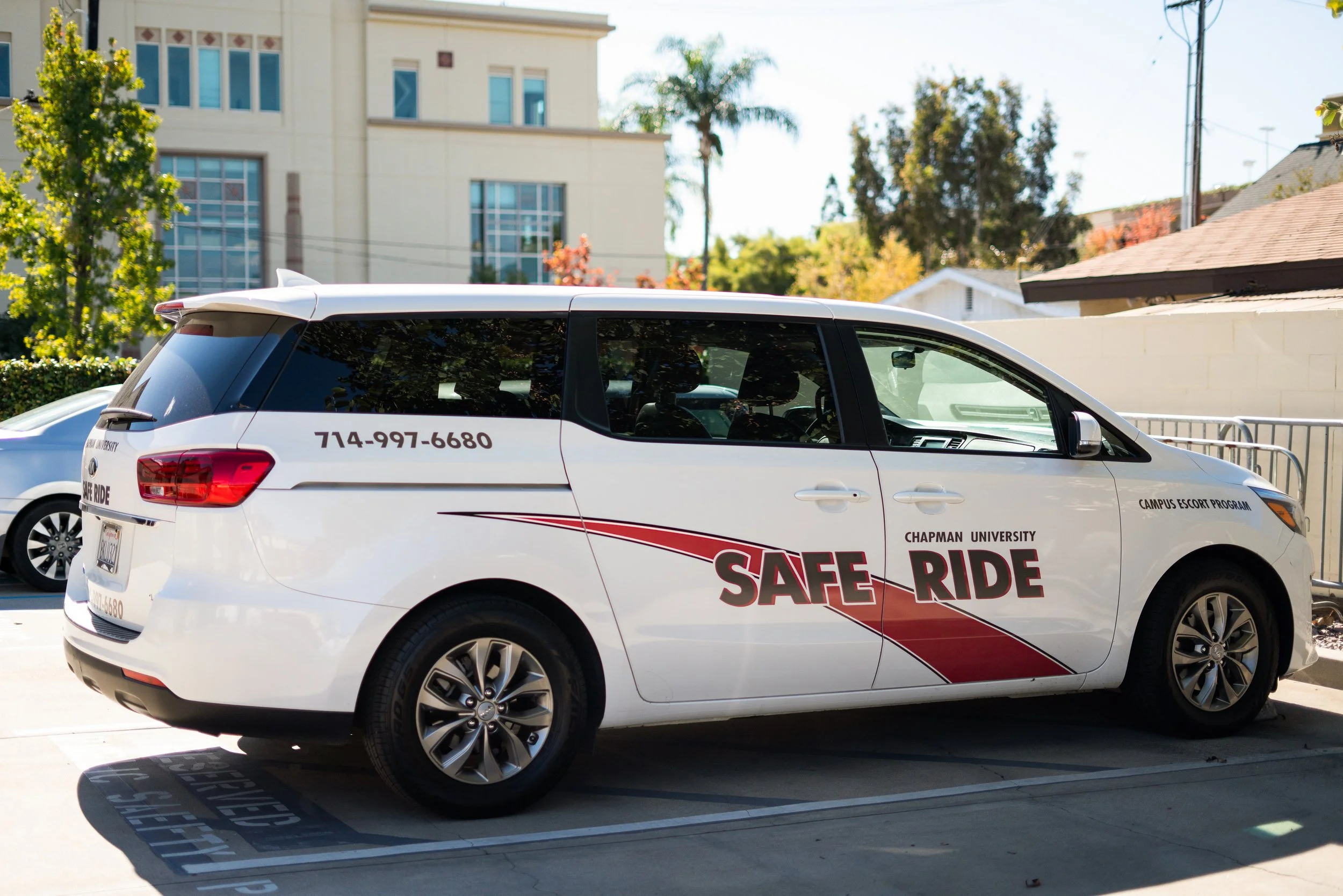Chapman sees reports of Safe Ride abuse
Students are beginning to abuse the university’s Public Safety Operation Safe Ride, leading to less safe ride accessibility for students who rely on the service, according to the Dean of Students Office. Photo by DANIEL PEARSON, staff photographer
In recent weeks, the Dean of Students Office has received reports of student abuse of Chapman University’s Public Safety Operation Safe Ride, a service to provide students with safe local transportation around the Chapman area.
“For many years Public Safety’s Operation Safe Ride has been a great service to students who need a safe ride home or to another appropriate location,” Dean of Students Jerry Price wrote in a weekly announcement email last month. “However, we recently have received reports that some students have been using Safe Ride as transportation to off-campus parties.”
Rick Gonzalez, Chief of Public Safety, confirmed that there has been a recent abuse of Safe Ride trips. He told The Panther that there was one incident recently where students used the Safe Ride program to get to a party.
According to Chapman’s website, Safe Ride is intended to eliminate any fears people may have about their safety from waiting outside alone, and it’s also meant to escort students, faculty, staff and visitors around the university during the hours in which safety is of utmost concern.
Public Safety officers can also provide an escort anytime outside Safe Ride’s operation hours if requested by someone who feels the need for a safe escort.
Public Safety prohibits students from partaking in activities that may correlate with off-campus parties while present in a Safe Ride vehicle.
Peyton Ming, the lead Resident Advisor for Pralle-Sodaro Hall, helps to oversee Safe Ride trips that are called for first-year residents. According to Ming, students who use Safe Ride to attend off-campus parties may be using it to save money rather than for concerns of safety.
“Safe Ride was started for students that don’t want to walk home after a night class off campus, or even just down the street to feel safe, not for people who say, ‘We don’t have to pay for an Uber if we use Safe Ride,’” Ming told The Panther.
According to Gonzalez, misusing Safe Rides could increase the wait time for other students or staff and discourage them from using the service in the future.
Price affirmed that using Safe Ride for purposes against its policies will not only increase wait time but also advocate attendance at off-campus parties for students.
“Please understand that this is not an appropriate use of the service,” Price wrote in his email announcement. “When a Safe Ride vehicle drops students off at a party, it unintentionally sends a signal that Public Safety advocates attendance at these parties; of greater concern is the fact that it results in Safe Ride vehicles being unavailable for other students who actually need a safe ride home.”
According to Ming, first-year students may be more unfamiliar with the local area and need Safe Ride trips more often than older students at Chapman. Safe Ride abuse has the potential to decrease with more advertising of its policies to freshman residents.
“I think we, the resident advisors, need to emphasize (Safe Ride policies), whether it’s a flyer or an email or speaking to residents,” Ming told The Panther.

